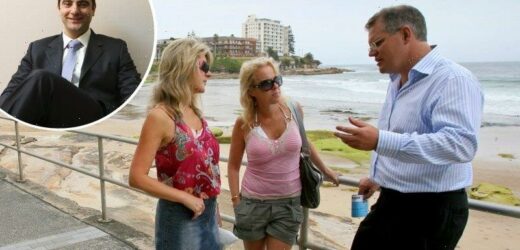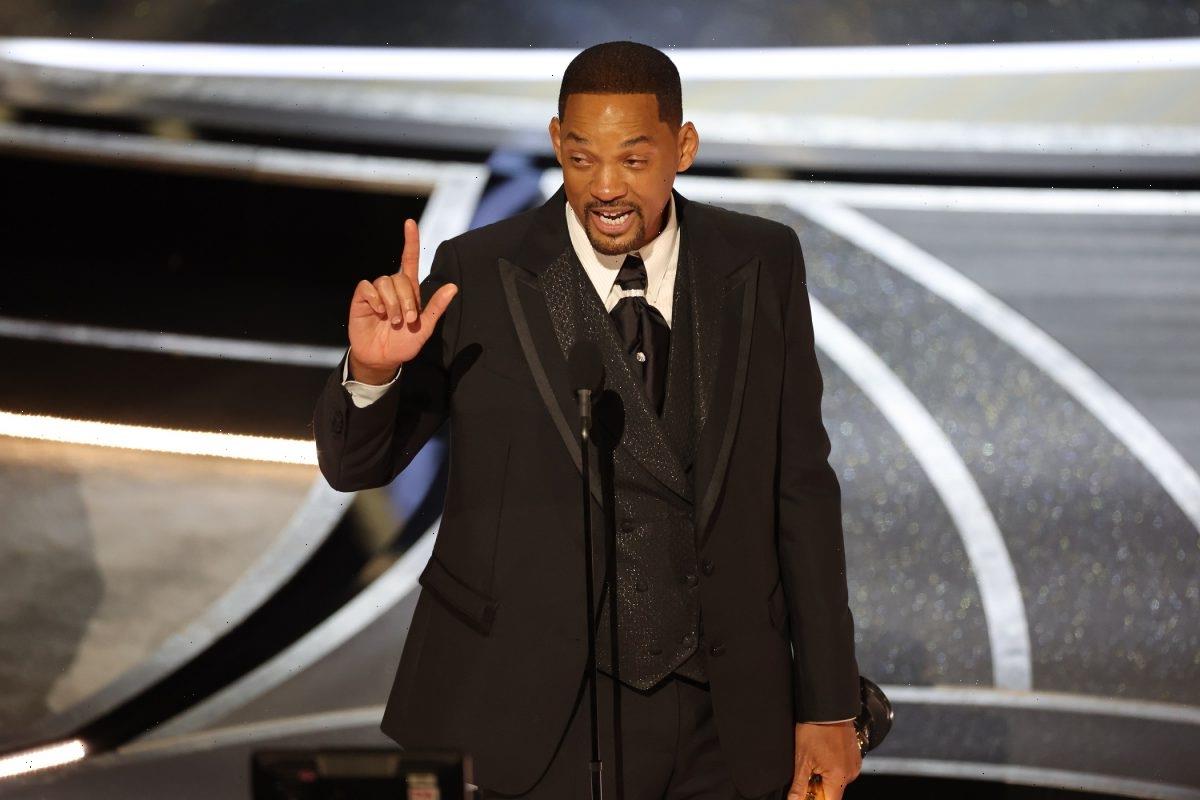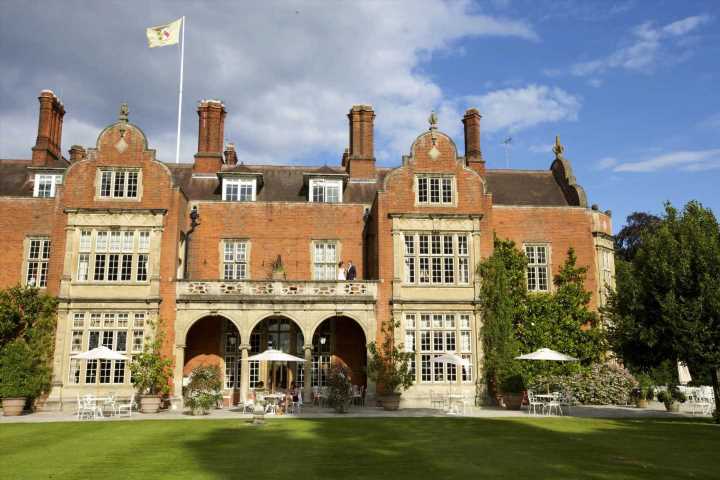Two men involved in a hard-fought Liberal preselection battle have signed written testimony that Scott Morrison warned people about the “Lebanese background” of his opponent in a crucial ballot to decide a safe federal seat, helping him win a bitter contest to enter Parliament more than a decade before he became Prime Minister.
The two statutory declarations, signed in 2016 about events in 2007, claim Mr Morrison told party members it was electorally risky to back his main opponent, Michael Towke, in the seat of Cook in the wake of the 2005 Cronulla Riots because of his ethnic background and because of rumours he was a Muslim.
Scott Morrison, speaking with locals at Cronulla Beach in the lead up to the 2007 Federal ElectionCredit:Dallas Kilponen
The statements are central to accusations by Liberal Senator Concetta Fierravanti-Wells in the Senate on Tuesday that Mr Morrison was “not fit to be prime minister” for reasons including the claim he had made “racial comments” to party members in the 2007 contest.
Mr Morrison has denied the claims about his personal behaviour and the specific allegation that he made race an issue in his successful bid to gain preselection for Cook, the electorate in southern Sydney which includes Cronulla, the beachside suburb that exploded in race riots in 2005.
One of the declarations was from party member Scott Chapman, who is a friend of Mr Towke, and says Mr Morrison spoke about his rival’s family background as a factor in the race to represent Cook.
“Scott Morrison told me that, if Michael Towke were to be preselected, there would be a ‘swing against the Liberal Party in Cook’ because of Mr Towke’s Lebanese background,” Mr Chapman said.
The Liberal Party has two statutory declarations alleging Mr Morrison made disparaging comments about Michael Towke, another preselection candidate for Cook.Credit:Jon Reid
“Also during that meeting, Scott Morrison informed me that there was a strong rumour about that ‘Michael Towke is actually a Moslem’ [sic].”
The Sydney Morning Herald and The Age sought comment from Mr Chapman but he declined to respond.
The second declaration, written by Mr Towke, says a number of party members told him Mr Morrison had appealed to them to vote against him “solely on the rationale that my family heritage was Lebanese” because this would hurt the Liberal campaign.
“He was adamant and explicit that a candidate of Lebanese heritage could not hold the seat of Cook, especially after the Cronulla riots,” he said.
The Sydney Morning Herald and The Age contacted Mr Towke, but he declined to comment.
The statutory declarations were signed in 2016 after several years of litigation in which Mr Towke received $50,000 from News Corp Australia publications over their reports on the claims made against him and also received $33,000 from the Liberal Party to refund his legal costs. The two statutory declarations were not used in legal proceedings.
Mr Morrison’s spokesman emphatically rejected the claims when asked if the Prime Minister had spoken in this way about his opponent’s Lebanese background or the rumour he was a Muslim.
“These claims are baseless and false and reflect poorly on those spreading such lies with such malicious intent,” the spokesman said.
The former member for the seat, Bruce Baird, who was aware of the preselection dispute but did not vote in the contested ballot, said he had never heard Mr Morrison say anything racist.
“I never found him racist, I didn’t find him a bully,” said Mr Baird, who employed Mr Morrison at the Tourism Council when he led the organisation in the 1990s, in a period between being a NSW government minister and moving into federal politics.
“There were lots of people he interacted with, but nobody said he was a bully. I’ve never heard him say anything racist at all.”
Another former member, Stephen Mutch, who represented Cook in the 1990s, said he voted for Mr Towke in the ballot after hearing from Mr Morrison.
“In that preselection, Morrison’s telephone sales pitch to me galvanised my support for Michael Towke,” said Dr Mutch, who became an academic at Macquarie University after leaving Parliament.
Dr Mutch added that he had great sympathy for Senator Fierravanti-Wells in her complaints about “manipulated preselection processes” in the NSW division of the Liberal Party, a concern that led some members to go to court last week to seek the right to vote in preselection ballots.
“The fact that genuine grassroots democracy is a sick joke in the party is the reason I am no longer a member of it,” he said.
Senator Fierravanti-Wells told the Senate last Tuesday that Scott Morrison was “not fit to be prime minister” because of his conduct.Credit:Alex Ellinghausen
The events of 2007 have been disputed within the Liberal Party ever since Mr Morrison gained endorsement and entered Parliament, leading Senator Fierravanti-Wells to tell the Senate last Tuesday that he was “not fit to be prime minister” because of his conduct.
In an extraordinary attack on a Liberal prime minister from an elected member of his party ahead of an election, Senator Fierravanti-Wells described Mr Morrison as “ruthless” and a “bully” and said he had made “racial comments” against Mr Towke in the 2007 preselection contest.
Mr Towke was close to Ms Fierravanti-Wells who had supported him in his preselection bid.
Mr Morrison rejected those claims last week and said he understood why Senator Fierravanti-Wells was “disappointed” she had lost a ballot last month to keep her place on the Senate ticket, which means she will leave the upper house on June 30.
Cabinet ministers including Treasurer Josh Frydenberg, Finance Minister Simon Birmingham and Financial Services Minister Jane Hume defended Mr Morrison and noted that Senator Fierrvanti-Wells had lost the ballot to stay in Parliament.
“I can say that I’ve never experienced bullying within the party, certainly not from this prime minister,” Senator Hume said last week.
Two other candidates in the disputed 2007 preselection, Paul Fletcher and David Coleman, also lost to Mr Morrison but went on to win other seats for the Liberal Party at later elections and both serve as ministers in the government.
Mr Fletcher is Communications Minister and Mr Coleman is Assistant Minister to the Prime Minister for Mental Health and Suicide Prevention. In the years since the ballot neither has said Mr Morrison made racial comments or acted unfairly, but both declined to comment for this story.
Questions over character are likely to become part of the election campaign after Mr Morrison challenged Mr Albanese on whether he had the toughness to lead the country.
Mr Albanese has been under fire from the government over his refusal to launch a review into the treatment of Kimberley Kitching, who died of a suspected heart attack on March 10.
With Senator Kitching’s friends revealing concerns that she was bullied by Senate colleagues including Penny Wong, Kristina Keneally and Katy Gallagher, the government has accused the Labor leader of being a hypocrite for not being willing to look into problems in his own party after calling for reviews into the Liberals.
“What we’ve got from Anthony Albanese, at the first sign of hard questions, and we’re not even into the campaign, he has gone into complete hiding. Frankly, I think it’s pretty gutless,” Mr Morrison said on March 22.
The Prime Minister’s supporters dismissed the claims from Senator Fierravanti-Wells by saying they were motivated by “sour grapes” because she did not keep her position on the Coalition Senate ticket for the coming election at a ballot held last weekend.
Labor aged care spokesman Clare O’Neil took a swipe at Mr Morrison during an interview on Sky News on Friday by listing people including Deputy Prime Minister Barnaby Joyce who had expressed a “very dim view” of the Prime Minister.
Mr Joyce admitted to calling Mr Morrison a “hypocrite and a liar” in a private text message that was leaked to the media, while Labor is pointing to people including One Nation leader Pauline Hanson, Tasmanian independent Jacqui Lambie, former Liberal Julia Banks who have called him a bully.
But when former prime minister John Howard was asked about the claims last week he defended Mr Morrison.
“I haven’t seen any evidence that [Mr Morrison] is a bully, that he’s arrogant or any of that. Forceful? Well, anybody who gets to be the leader of a political party is forceful,” Mr Howard said.
Jacqueline Maley cuts through the noise of the federal election campaign with news, views and expert analysis. Sign up to our Australia Votes 2022 newsletter here.
Most Viewed in Politics
From our partners
Source: Read Full Article





